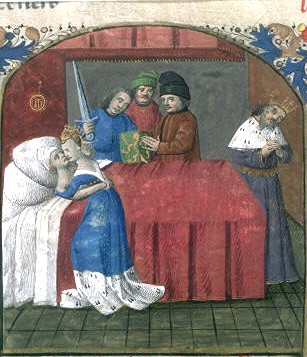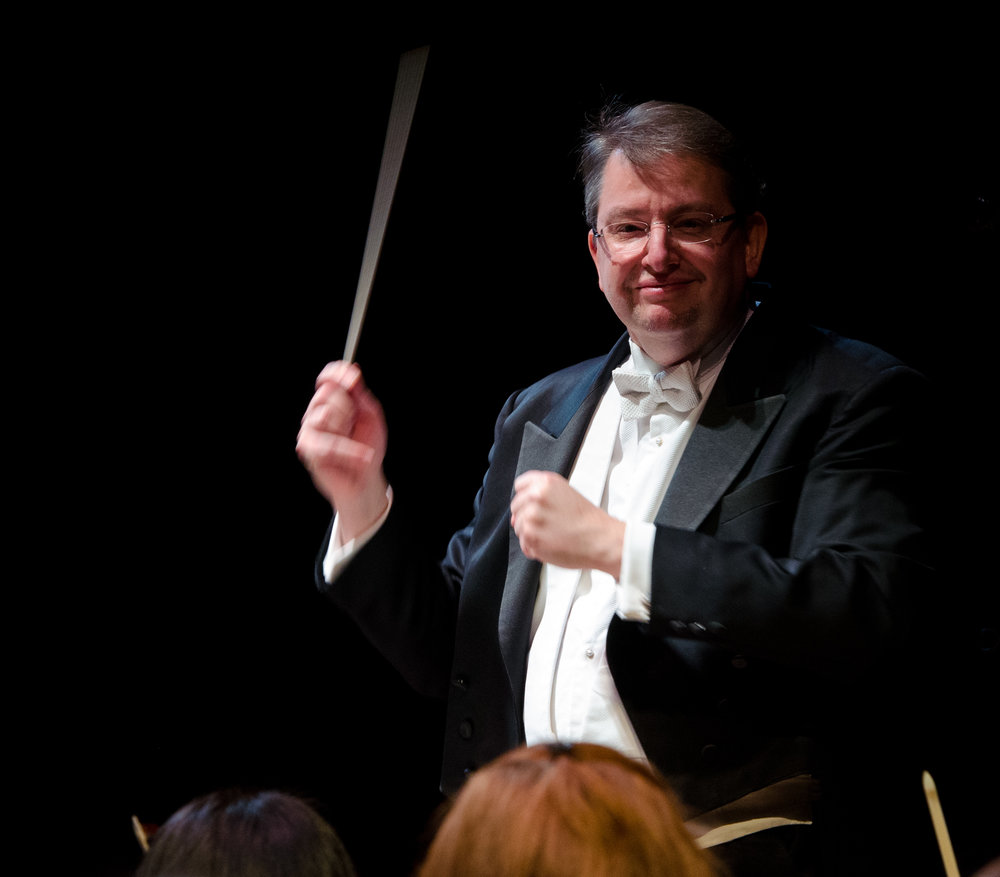La mort de Tristan et d'Yseut. Miniature du xve siècle. BnF. Public domain image from French Wikipedia.
Le vin herbé or Le Vin herbé or Le Vin Herbé - all are variations I have seen listed in a simple Google search. One might think this French phrase would be translated as “the herb-infused wine”, but my search revealed translations of “the drugged wine”, “the spiked wine”, “a magic potion”, and “the love potion”. Wolf Trap Opera and Washington Concert Opera go with that last one. Regardless, I admit that I had never heard of Swiss composer Frank Martin’s Le vin herbé, before seeing this opera listed in the Washington Concert Opera and Wolf Trap Opera schedules. But then, I’m still in my first decade of loving opera. Several of the productions by WTO and WCO that I have attended the last few years were operas unfamiliar to me, some by famous composers whose better known works I had seen. Yet, some of those performances of little known works rank among my best opera experiences in terms of entertainment value and artistic enrichment. So, I tend not to be daunted by seeing an unfamiliar title in their schedules. Instead, I look forward to seeing the performance. Add having WTO and WCO work together to put forward a lesser known work, and my curiosity and motivation to attend get even greater.
Interested yet? What if I add that the story is a version of the Tristan and Iseut legend. In fact, it has been described as “a Tristan with a difference”. Tristan… love potion…starting to make sense? Composer Martin based his libretto on a book, Joseph Bédier’s “Roman de Tristan et Iseut”, itself a variation on the 12th century legend about the Cornish knight Tristan and the Irish princess Iseut, a story with a plot of adulterous love (Iseut was wed to King Mark) that has since been retold in countless variations, famously used by Richard Wagner in his great opera, Tristan und Isolde, and even more famous perhaps from Camelot (you know, Lancelot and Guinevere). The temptation for opera fans will be to compare this modern telling with Wagner’s version. However, Martin composed his opera in the late 1930s in Switzerland as Nazi aggression was mounting in Europe and had its first performance in 1941 at the beginning of WWII; according to one report, he chose Bedier’s version of the myth to distance himself from Wagner’s and from Wagner’s adulation by the Nazi’s. Martin called his opera “a secular oratorio” and began it originally as a 30-min piece, later expanded. It was after the war that it was first fully staged, but all of this really started in the 12th century.
Conductor Antony Walker. Photo by Don Lassell; courtesy of Washington Concert Opera.
Le vin herbé is a chamber piece composed for 12 voices, seven strings, and piano. The opera is viewed as a statement of Martin’s musical individuality, powerful in its conveyance of emotion. The conductor for this performance is WCO’s Music Director Antony Walker, who conducted WTO’s The Touchstone in June 2017. The majority of the young artists who will be singing come from current and former members of Wolf Trap Opera training programs, including leads tenor Ian Koziara and soprano Shannon Jennings. Mr. Koziara was a stand out in this past summer’s production of Idomeneo by WTO. In the Post’s Anne Midgette review, she said he “sung with a striking beauty of tone” and called him a “wonderful young artist.” Ms. Jennings who was previously a WTO Studio Artist is returning this year as a Filene Artist. She will be singing the role of Michaela in Annapolis Opera’s upcoming production of Carmen on March 15, 17.
Ian Koziara, who will portray Tristan and Shannon Jennings who will portray Iseut la Blonde. Photos courtesy of Wolf Trap Opera.
Because of my unfamiliarity with Le vin herbé, I submitted questions to Conductor Walker to ask more about the collaboration and the music. He first responded, “This collaboration between WCO and WTO came about principally because I had a desire to present Le vin herbé, and thought that I could do this best in a co-production with WCO and WTO at The Barns of Wolf Trap, featuring young singers who had an association with WCO, WTO and Pittsburgh Opera (where I am Music Director, and where we have a Resident Artist program). Luckily, WTO’s Kim Witman was very receptive too, and excited by the idea of such a co-production and by Le vin herbé itself. My association with Wolf Trap Opera goes back to 1997, where I conducted Mitradate Re di Ponto as my US debut! It was this association with WTO that led to my being appointed Artistic Director & Conductor of Washington Concert Opera in 2002, as WCO knew my work through WTO! Thus, both WCO and WTO are very dear to me, and I am so thrilled that we are able to collaborate in this way.”
Given that Le vin herbé is a modern work, I also asked Maestro Walker what we might expect of the music. He responded, “Le vin herbé is so intimate and intense, so beautifully scored for the chamber ensemble and creates a sound-world that is both medieval and romantic, and quite accessible if you enjoy French music from the early 20th century like Debussy or Ravel. Is Le vin herbé an opera? Is it an oratorio? Is it a chamber work? How is it that one can hear Wagner and Debussy in the score and still be struck by Martin’s distinctly individual voice. I am unable to define Le vin herbé by any category or label that we generally use in classical music, and I think that this is partly what makes the work so compelling, fascinating, intense, and fresh.”
Dear reader: I only asked for you. I was not going to miss this one.
The Fan Experience: Two performances of Le vin herbé are scheduled, Saturday evening, February 9 and Sunday afternoon, February 10. Click this link for tickets. The Barns at Wolf Trap is one of my favorite venues – modest ticket prices, easy in, free parking, close up seating, food and drink available, ok to take drinks to your seat, easy exit after the performance. What’s not to love? Many thanks to WCO staff and Maestro Walker for the responses to my questions.




